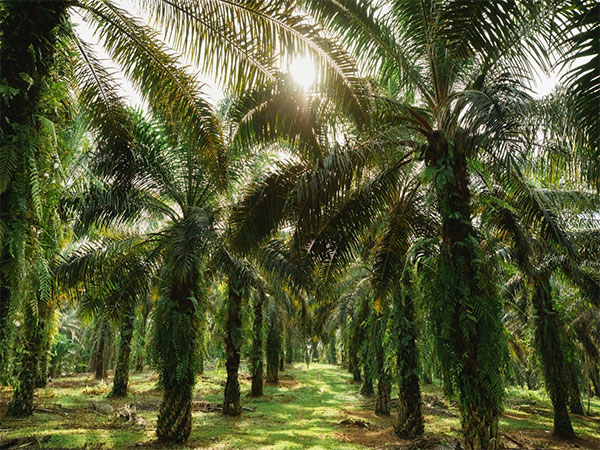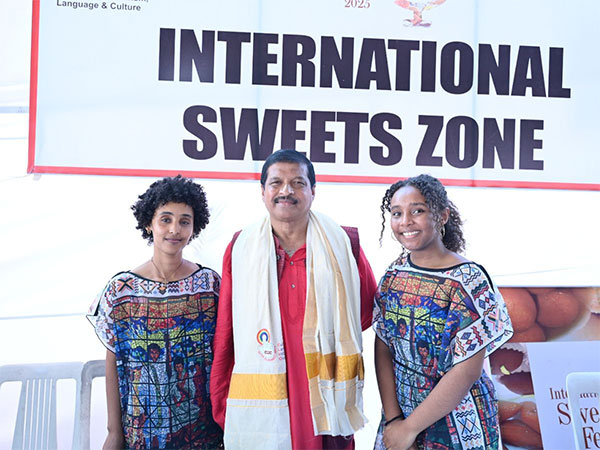
'The Stories of Palm Oil' a 5-part documentary series launched
Aug 08, 2024
VMPL
New Delhi [India], August 8: 'The Stories of Palm Oil', a five-part documentary series sheds light on the social, economic, industrial and environmental impact of Palm Oil on the world. The series offers a comprehensive view about the production, consumption and sustainability of Palm Oil. As the world's second-largest producer of palm oil, Malaysia plays a crucial role in meeting global demand, with India its largest importer. Through a detailed report, the series draws attention to the significance of Palm Oil in global food security and bilateral relations between India and Malaysia.
The documentary showcases the health benefits of palm oil, noting its rich natural nutrients, including tocotrienols, which support cardiovascular health and offer antioxidant properties. Additionally, it is an excellent source of fatty acids, free of trans fats, and contains lower levels of omega-6 compared to oils like sunflower and sesame, which reduces its inflammatory potential. Palm oil is safe for consumption in moderation and has a high smoke point, making it ideal for frying while preserving nutritional integrity and flavour. Palm oil also has a significant role to play in heart health, brain function, and addressing vitamin A deficiency. Its antioxidant properties also aid in conditions such as Alzheimer's and Dementia.
Malaysia has been instrumental in aiding support to India with high-quality seeds and technological expertise. In the process of becoming 'Atmanirbhar,' India's NMEO-OP initiative has witnessed growth in the production of PO indigenously from 300,000 hectares to 450,000 hectares recently. The government aims to expand this to 1 million hectares by 2027.
Datuk Seri Johari Abdul Ghani, Malaysia's Minister of Plantation Industries and Commodities, emphasised the economic significance of palm oil, stating: "Palm oil is a very significant commodity for us. It contributes roughly 3% to our GDP, which is about $400 billion USD. Palm oil cultivation covers about 5.7 million hectares in Malaysia. Large companies employ around 1 million workers, while smallholders support about 450,000 households. This activity generates significant income and revenue for these communities."
Belvinder Sron, CEO of the Malaysian Palm Oil Council (MPOC), highlighted the sector's importance in meeting food security, with significant exports and a focus on refining and processing techniques. She said: "The flourishing industry, resulting from over 100 years of persistent effort and strategic planning, has been bolstered by good government policies, incentives, infrastructure, and regulatory frameworks. We have invested significantly in refining cultivation and processing techniques, increasing productivity and quality. Last year, we exported about 24 million tonnes of palm oil and products, valued at around $22 billion USD, highlighting the sector's importance in meeting food security."
In Malaysia, the export of palm oil generates around $20 billion USD annually and provides substantial tax revenue of about $4 billion USD. The industry supports around 30 companies, serves 4 million customers, and produces approximately $3.5 billion USD worth of products.
The series highlights technological advancements in agriculture, focusing on Malaysia's investments in refining cultivation and processing techniques. Initiatives like the Felda land settlement scheme have boosted palm oil cultivation and reduced poverty. The industry has embraced mechanisation and precision farming to align with global standards and achieve net-zero carbon emissions by 2050. Technology, including drones and AI, enhances operational precision and productivity, while companies commit to forest conservation, land restoration, and biodiversity preservation. The Malaysian Sustainable Palm Oil (MSPO) certification scheme supports various United Nations Sustainable Development Goals (UNSDGs) and ensures adherence to environmental and sustainability standards which covers 98% of oil palm planted areas in Malaysia, equivalent to 5.5 million hectares, and represents around 300,000 smallholder farmers nationwide.
Sustainable palm oil production has also bolstered Malaysia's oleochemical industry, which contributes 20% of the world's total oleochemical capacity. The sector's growth potential in India is significant due to increasing use and high demand for palm oil-derived biodiesel and other products.
In conclusion, palm oil is GMO-free, cholesterol-free, and trans fat-free, making it a preferred choice for cooking and baking. Palm oil's versatility extends to its use in cooking oils, oleochemicals, and various products including soaps, shampoos, detergents, and chocolate. Its efficient production ensures affordability and a consistent supply without compromising quality.
Palm Oil is well positioned to improve the relationship between India and Malaysia. Through improved imports in addition to technological and research collaborations, both nations can benefit on economic and environmental fronts.
About 'The Stories of Palm Oil' documentary: This documentary deals with the facts about the Palm Oil industry. It is the biggest ground report on Palm Oil from Malaysia. An in-depth analysis into the pivotal role of Malaysian palm oil in boosting the economy, supporting local communities, and feeding the world. The documentary helps in highlighting the versatility and numerous health benefits of Palm Oil along with how Palm Oil ensures food safety on a global scale.
(ADVERTORIAL DISCLAIMER: The above press release has been provided by VMPL. ANI will not be responsible in any way for the content of the same)






